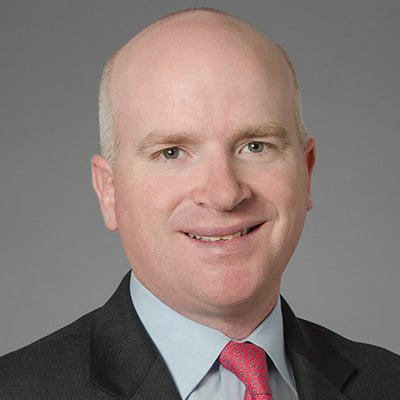Oregon SB 951 — Nation’s Toughest Limits on Private Equity in Physician Practices Now Law
On June 9, 2025, Oregon Governor Tina Kotek signed Senate Bill 951 into law, marking a turning point in how states regulate private investment in medical practices. SB 951 strengthens Oregon’s corporate practice of medicine (CPOM) doctrine and introduces new restrictions on “friendly PC” arrangements including codifying existing CPOM prohibitions and introducing new prohibitions on dual ownership in a management services organization (MSO) and a professional organization with which the MSO has a contract for management services. The law also introduces certain restrictions on equity transfer restriction agreements. Much of the law only applies to physicians, nurse practitioners, physician associates, and naturopathic practitioners and their associated practices — it does not apply to dental, veterinary or optometry practices.
The law went into effect immediately, but compliance deadlines are staggered. New “friendly PC” arrangements and agreements with certain restrictive covenants formed or entered into after June 9, 2025, must comply by January 1, 2026. Existing structures have until January 1, 2029, to transition. For investors and healthcare operators, that timeline leaves little room for delay. Legal teams should begin reviewing deal terms and service models now.
Lawmakers are currently considering HB 3410A, a follow-on bill that would tweak key provisions of SB 951, including the prohibition on dual MSO/PC ownership and restrictive covenants.
SB 951, as well as Oregon’s existing healthcare transaction review framework, makes it clear that Oregon is intent on closely regulating private equity investment into healthcare.
Key Restrictions on MSO Ownership and Control
SB 951 prohibits dual ownership and control between MSOs and the physician practices they manage. Under the new law, MSOs and their affiliates — including directors, shareholders, employees and contractors — can’t own or control medical practices, sit on their boards or hold governance rights. MSOs that previously used dual ownership to align interests with their physician partners will need to find alternate mechanisms to allow their physician partners to participate in the growth of the MSO.
The bill also prohibits the use of equity transfer agreements, a common tool for aligning ownership between MSOs and affiliated practices. MSOs can no longer require or prevent the sale of equity in a physician practice, and physician practices can only do so under narrow circumstances including the revocation of a practitioner’s license or a felony indictment. These new restrictions strike at the foundation of MSO/PC arrangements and will require creative solutions.
Operational Oversight: Where the Line Is Drawn
Although MSOs were already prohibited from interfering with a practice’s clinical decision-making under Oregon’s existing CPOM doctrine, the law codifies this restriction by attempting to draw a line between administrative support and clinical control. MSOs may still handle back-office functions such as payroll, HR and compliance consulting, while being explicitly prohibited from influencing clinical decision-making.
Prohibited activities include:
- Making hiring or compensation decisions for licensed providers;
- Setting clinical schedules or patient loads;
- Influencing diagnostic coding, treatment protocols or care standards; and
- Negotiating payer contracts or determining billing and collection policies.
Restrictive Covenants Invalidated
SB 951 also voids a range of restrictive covenants that have long been standard in MSO agreements. Noncompete agreements for licensed providers are unenforceable unless tied to physician-owners with a 10% or greater stake in the practice. Nondisclosure and non-disparagement agreements are also invalid unless tied to trade secrets or entered into under specific termination protections.
These changes will affect not only new agreements but also apply to any existing contracts that are renewed or entered into after June 9, 2025.
Enforcement and Litigation Risk
Violations of SB 951 may be treated as unlawful trade practices, which will allow the Oregon attorney general to seek civil penalties and injunctive relief and will allow private plaintiffs to pursue damages.
What’s Still Allowed — and What’s Not
The law does not ban MSOs outright. MSOs can still provide administrative and business services to medical practices provided that those services do not result in the exercise of de facto control over the administrative or business operations of a medical practice in a way that affects clinical decision-making. The law also expressly permits tax-driven reorganizations, such as F-reorgs, giving deal teams some flexibility in restructuring legacy platforms.
The statute applies to physicians, nurse practitioners, physician associates and naturopathic doctors. There are narrow carve-outs for telemedicine-only practices and for physicians who hold less than 10% equity in the affiliated professional entity.
Strategic Considerations for Investors
For investors with exposure to Oregon-based physician practices, the implications are immediate:
- Review MSO agreements to identify control rights, equity terms and restricted covenants that no longer comply.
- Review credit agreements to identify covenants related to amendments to MSO agreements including prohibitions on amending management services agreements or requirements to maintain equity transfer restriction agreements.
- Review transaction structures that involve Oregon-based medical practices entities or healthcare professionals.
- Track HB 3410A and any further clarifications from the legislature or regulators.
Oregon’s Signal to the Market
SB 951 sets a new ceiling for state-level oversight of private equity healthcare investment. While other states have taken steps to regulate private equity in healthcare — Massachusetts, California and Connecticut among them — none have gone as far as Oregon in directly policing MSO operations and contractual terms.





